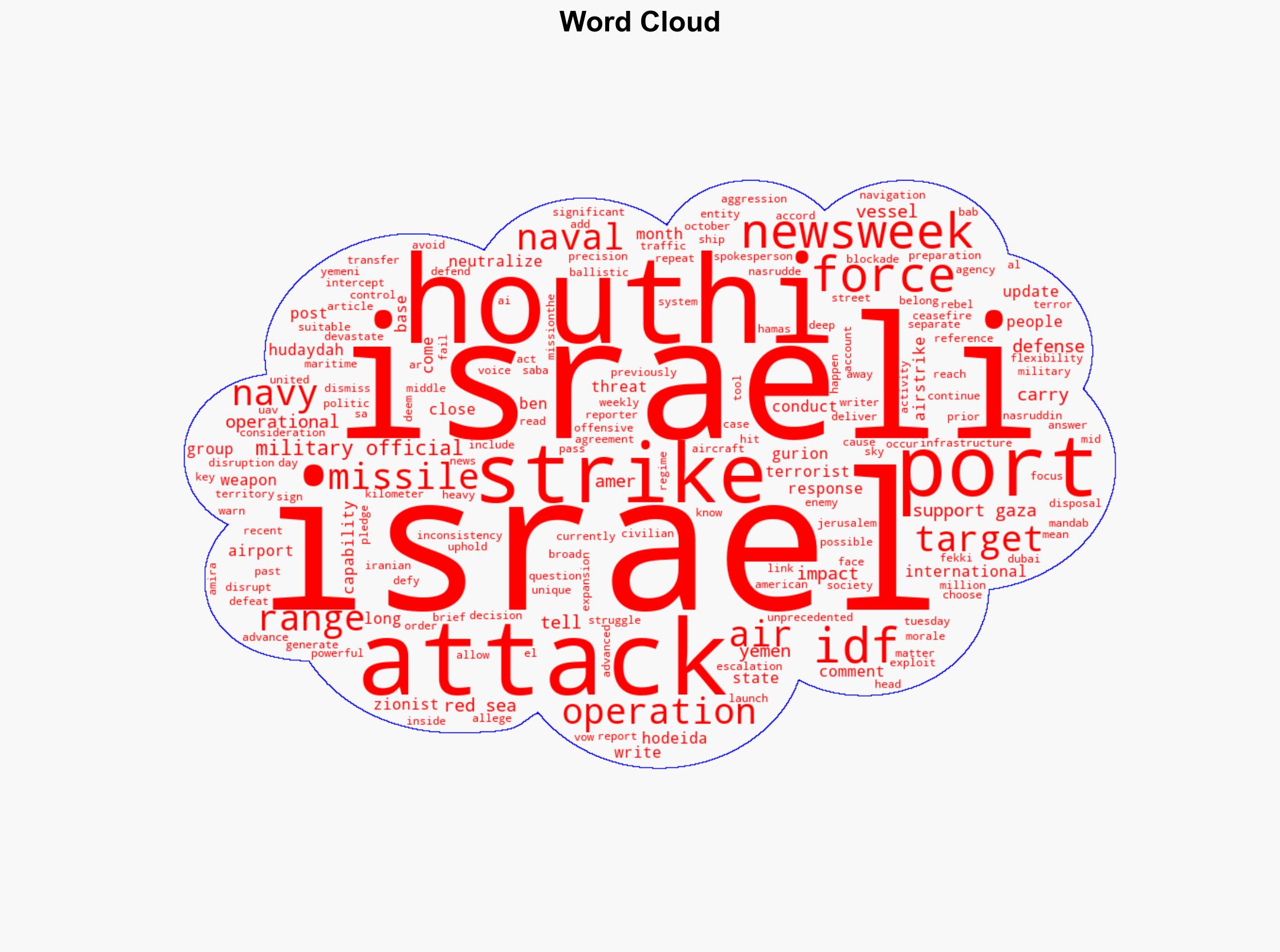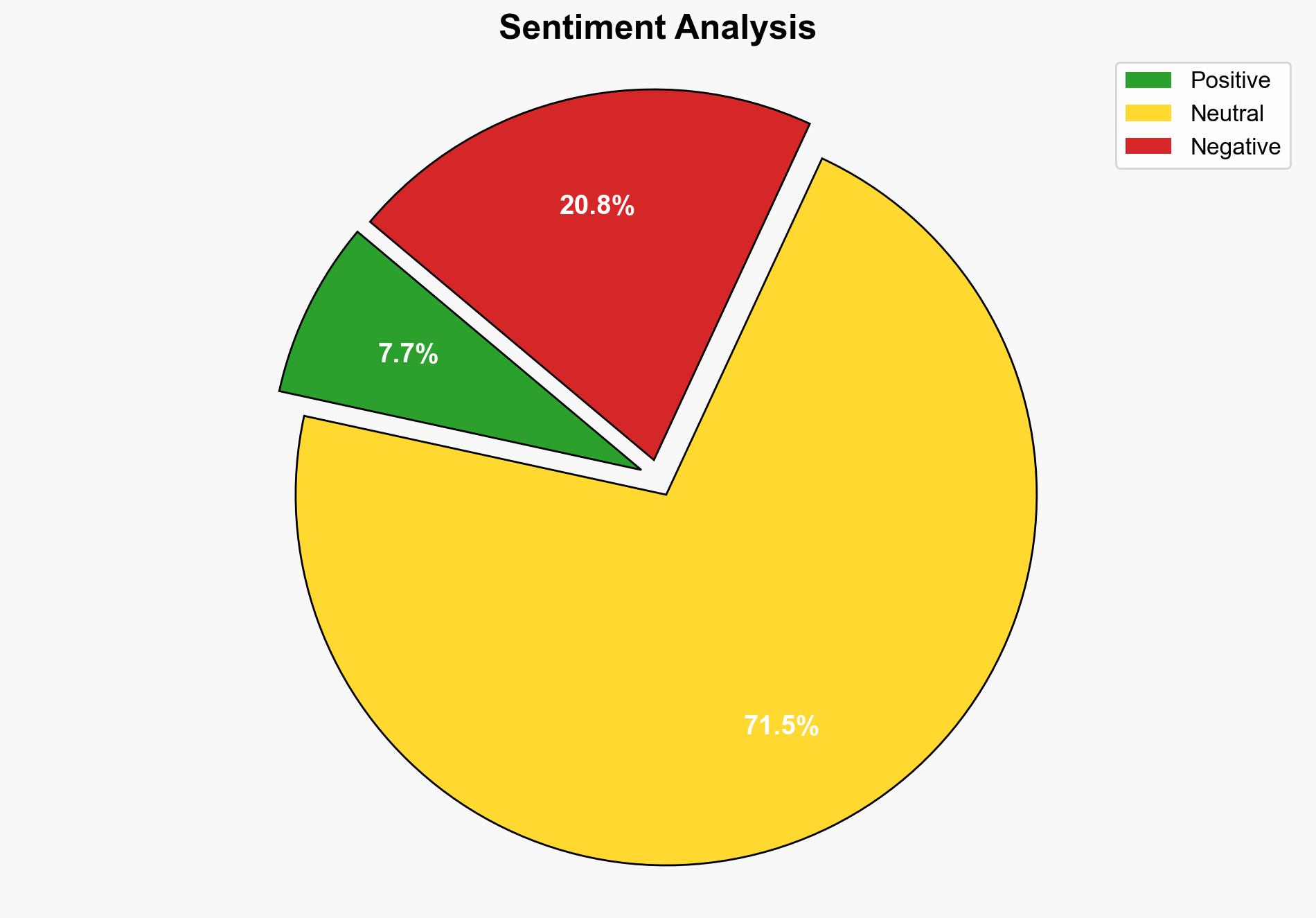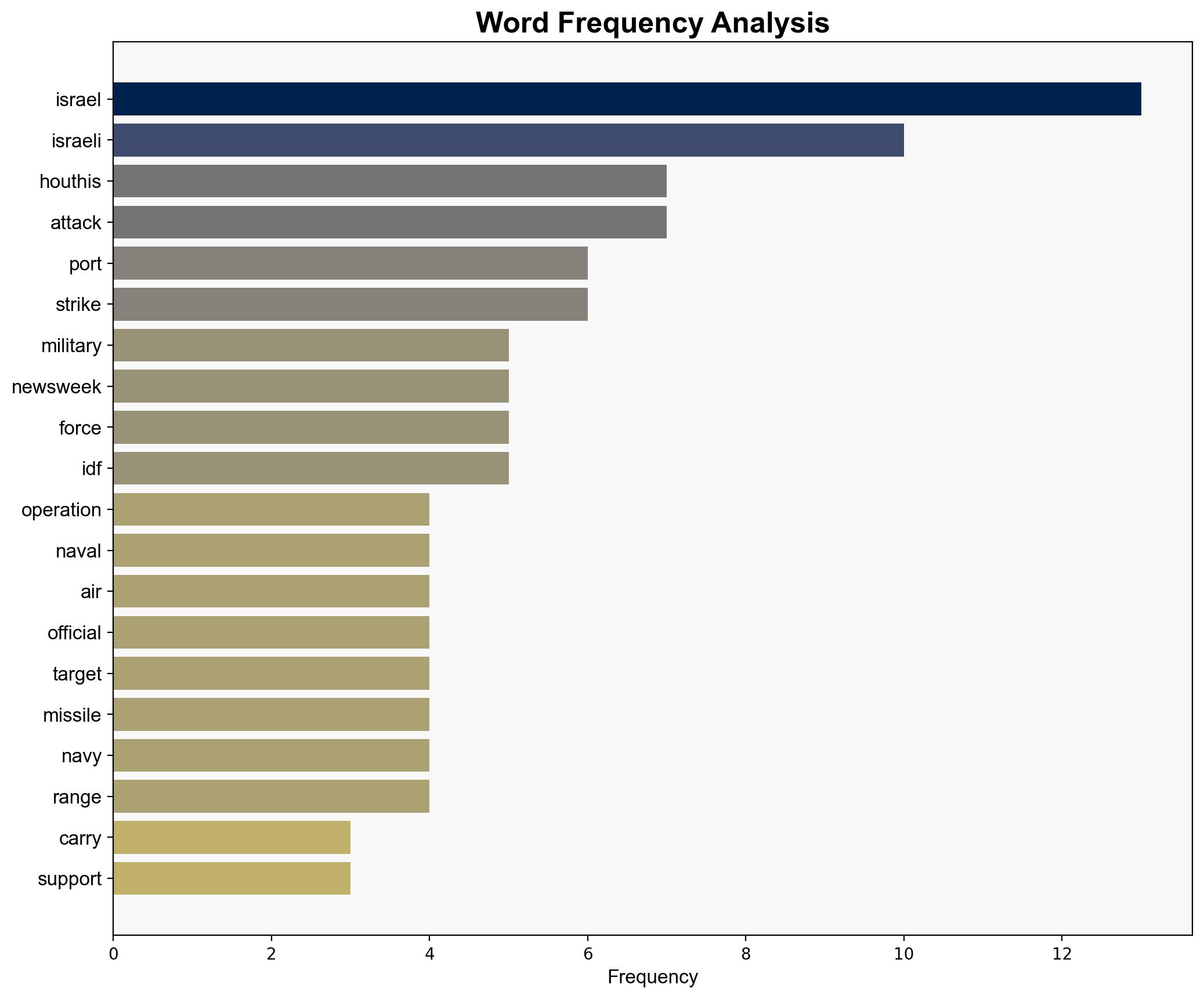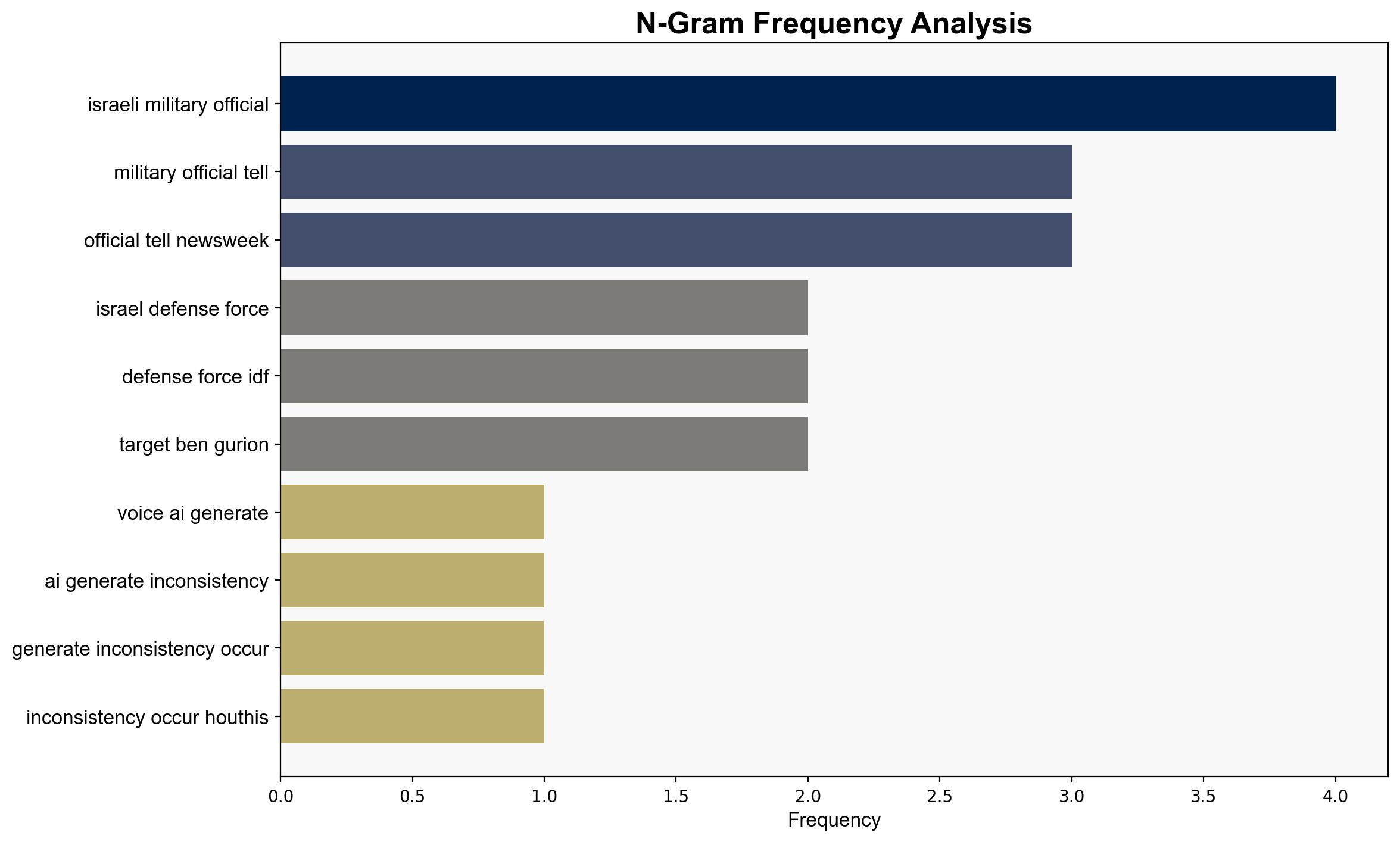Houthis Defiant After Unprecedented Israeli Naval Attack – Newsweek
Published on: 2025-06-10
Intelligence Report: Houthis Defiant After Unprecedented Israeli Naval Attack – Newsweek
1. BLUF (Bottom Line Up Front)
The recent Israeli naval attack on the Hodeida port in Yemen marks a significant escalation in the ongoing conflict involving the Houthis and Israel. The Houthis remain defiant, threatening further attacks on Israeli targets and international vessels in the Red Sea. This development underscores the potential for increased regional instability and highlights the need for strategic responses to mitigate further escalation.
2. Detailed Analysis
The following structured analytic techniques have been applied to ensure methodological consistency:
ACH 2.0
The Houthis’ response suggests a strategic intention to maintain pressure on Israel while leveraging regional support for their cause. The use of ballistic missiles against Israeli targets indicates a calculated risk to provoke and sustain a broader conflict narrative.
Indicators Development
Monitoring of online propaganda and digital communications reveals an increase in radicalization efforts and recruitment messaging, particularly emphasizing support for Gaza and opposition to Israeli actions.
Narrative Pattern Analysis
The Houthis are effectively using social media and traditional channels to propagate their narrative, focusing on resistance against perceived aggression and rallying regional support. This narrative adaptation is crucial for their recruitment and incitement strategies.
3. Implications and Strategic Risks
The escalation poses significant risks, including potential disruptions to maritime navigation in the Red Sea and increased military engagements. The threat to international vessels could lead to broader geopolitical tensions, involving key global players. Additionally, the failure of missile defense systems to intercept Houthi attacks highlights vulnerabilities in Israeli defense capabilities.
4. Recommendations and Outlook
- Enhance maritime security measures in the Red Sea to protect international shipping lanes and deter potential Houthi attacks.
- Strengthen missile defense systems to improve interception capabilities against ballistic threats.
- Engage in diplomatic efforts to de-escalate tensions and explore ceasefire agreements with regional stakeholders.
- Scenario-based projections:
- Best Case: Successful diplomatic interventions lead to a ceasefire and stabilization of the region.
- Worst Case: Escalation leads to broader regional conflict, impacting global trade routes.
- Most Likely: Continued low-intensity conflict with periodic escalations and international diplomatic efforts to manage tensions.
5. Key Individuals and Entities
Nasruddin Amer, a prominent figure in the Houthi-controlled media, plays a crucial role in shaping the group’s narrative and public messaging.
6. Thematic Tags
national security threats, cybersecurity, counter-terrorism, regional focus





